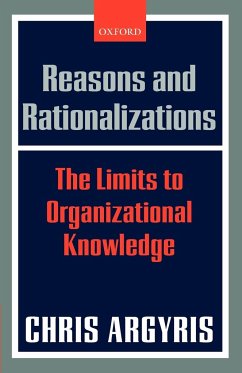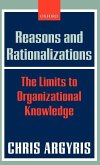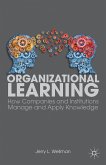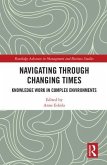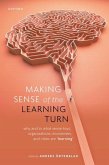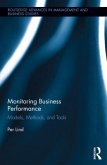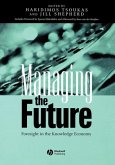What is the purpose of social science and management research? Do scholars/researchers have a responsibility to generate insights and knowledge that are of practical (implementable) value and validity?
We are told we live in turbulent and changing times, should this not provide an important opportunity for management researchers to provide understanding and guidance? Yet there is widespread concern about the efficacy of much research:
These are some of the puzzles that Chris Argyris addresses in this short book.
Argyris is one of the best known management scholars in the world - a leading light whose work has consistently addressed fundamental organizational questions, and who has provided some of the key concepts and building blocks of our understanding of organizational learning - single and double learning, theory in use, and espoused theory etc.
In this book he questions many of the assumptions of organizational theory and research, and his investigation is not confined to academic analysis. He also scrutinizes that capacity for 'unproductive reasoning' (self-deception and rationalization) that is common amongst managers, consultants, and indeed more generally. As well as engaging with the work of leading organizational researchers (Sennett, Gabriel, Burgelman, Czarniawska, Grint, for example)he also ponders the work of the
consultants, commentators, and accountants who endorsed Enron.
Throughout his purpose is to affirm the goal and values of useful knowledge. His style is direct but fair, challenging, if at times uncompromising. Drawing on his own wealth of experience of researching and working with organizations, this book will be a reference point for all concerned to develop useful knowledge and confront the defences and deceptions that are only too commonplace in the business and academic worlds.
Hinweis: Dieser Artikel kann nur an eine deutsche Lieferadresse ausgeliefert werden.
We are told we live in turbulent and changing times, should this not provide an important opportunity for management researchers to provide understanding and guidance? Yet there is widespread concern about the efficacy of much research:
These are some of the puzzles that Chris Argyris addresses in this short book.
Argyris is one of the best known management scholars in the world - a leading light whose work has consistently addressed fundamental organizational questions, and who has provided some of the key concepts and building blocks of our understanding of organizational learning - single and double learning, theory in use, and espoused theory etc.
In this book he questions many of the assumptions of organizational theory and research, and his investigation is not confined to academic analysis. He also scrutinizes that capacity for 'unproductive reasoning' (self-deception and rationalization) that is common amongst managers, consultants, and indeed more generally. As well as engaging with the work of leading organizational researchers (Sennett, Gabriel, Burgelman, Czarniawska, Grint, for example)he also ponders the work of the
consultants, commentators, and accountants who endorsed Enron.
Throughout his purpose is to affirm the goal and values of useful knowledge. His style is direct but fair, challenging, if at times uncompromising. Drawing on his own wealth of experience of researching and working with organizations, this book will be a reference point for all concerned to develop useful knowledge and confront the defences and deceptions that are only too commonplace in the business and academic worlds.
Hinweis: Dieser Artikel kann nur an eine deutsche Lieferadresse ausgeliefert werden.

